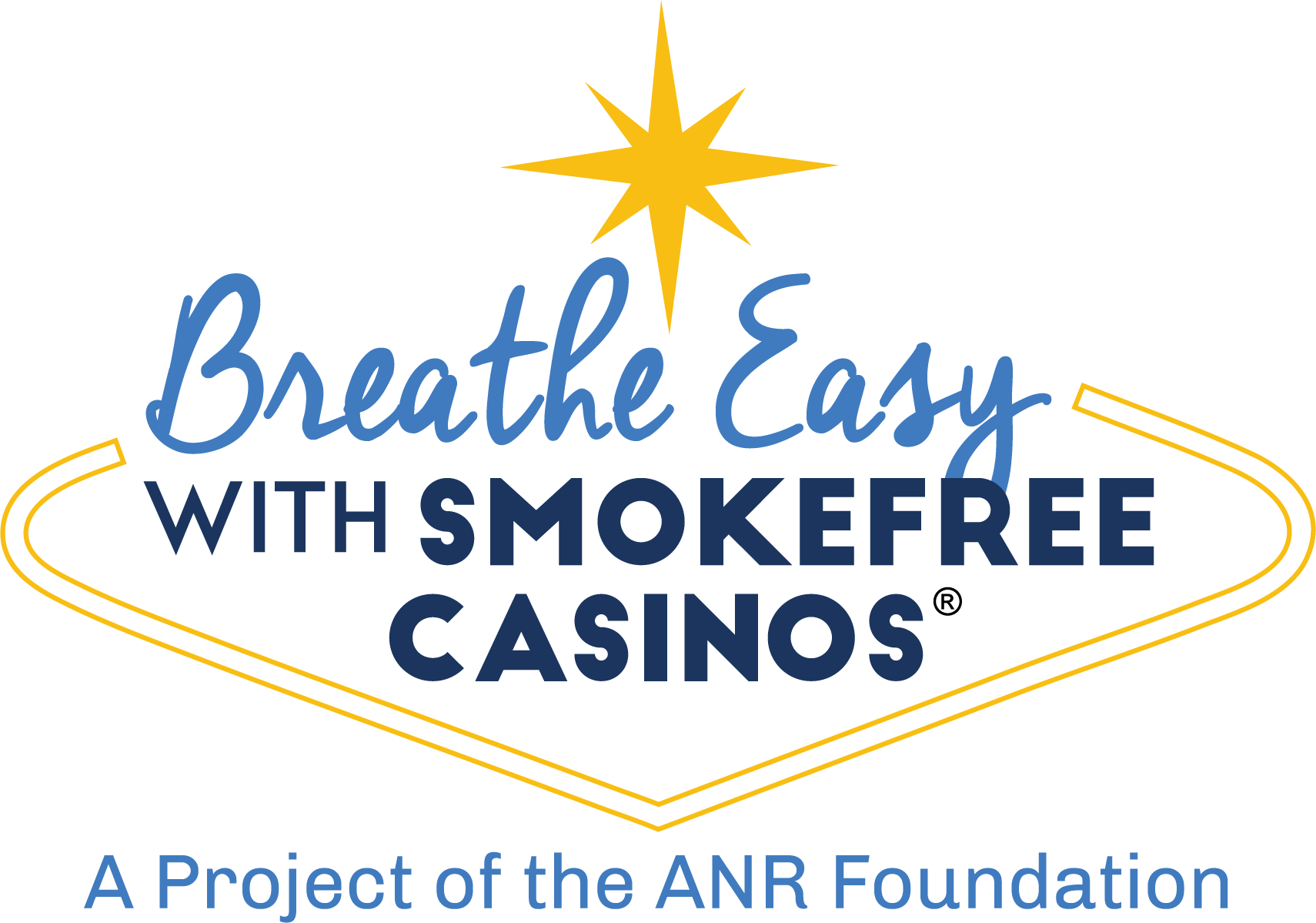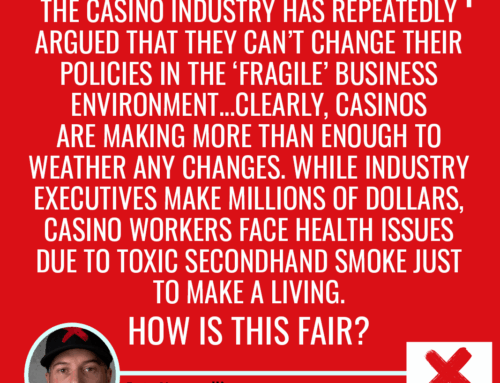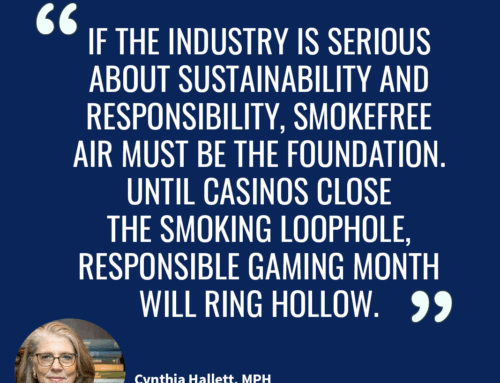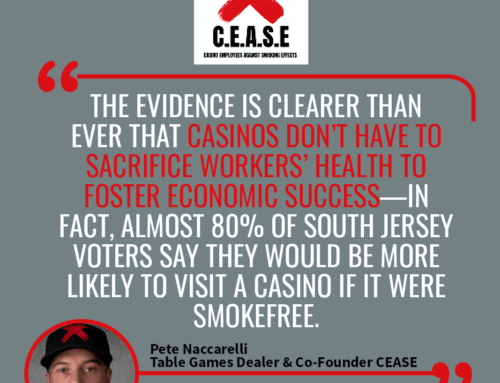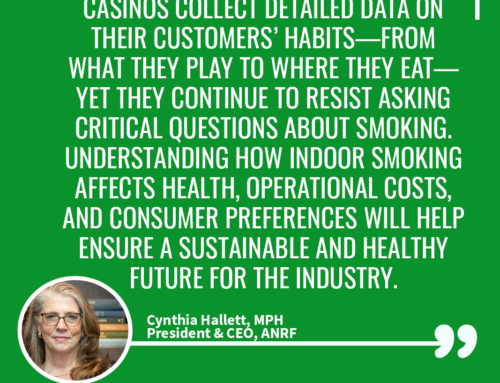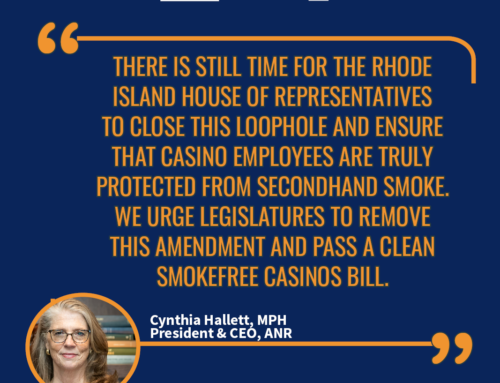Support Meets Threshold to Reconsider, Signaling Investor Interest In Health, Staffing, and Financial Risks Tied to Smoking Policies
Berkeley, CA — A shareholder proposal calling on Wynn Resorts to assess the financial consequences of its indoor smoking policy received 5.76 million votes at the company’s annual shareholder meeting last week. Representing over 8.6% of proxy votes, this level of support for a first-time vote surpasses the 5% threshold required for reconsideration in 2026.
The strong showing of support for the proposal reflects growing investor interest in greater transparency around the business risks of indoor smoking and the benefits of smokefree policies. While the vote is advisory and nonbinding, it sends a strong signal, especially in light of Wynn’s high insider ownership and management opposition, that the issue is increasingly of concern to shareholders.
“Millions of votes from Wynn shareholders in favor of this proposal—even as the company urged them to vote ‘no’—marks a successful first-year in our multi-year effort to educate shareholders about potentially significant cost savings from ending indoor smoking,” said Cynthia Hallett, president and CEO of the American Nonsmokers’ Rights Foundation (ANRF), a co-filer of the proposal. “This vote is an important step forward, especially for a first-year proposal that challenges deeply entrenched norms.”
The proposal was co-filed by the American Nonsmokers’ Rights Foundation (ANRF) and Trinity Health, a Livonia, Michigan-based health system, as part of a broader effort to push major casino operators to publicly examine the costs of outdated smoking policies — including elevated health insurance premiums, increased maintenance expenses, and the loss of customers who avoid smoky environments.
“Indoor smoking poses real business risks — from increased employee health costs to deterring health-conscious guests. As more consumers prioritize clean air and more states adopt smokefree casino policies, it’s critical for operators like Wynn to re-evaluate outdated assumptions and align with shifting public expectations,” said Cathy Rowan, Director of Socially Responsible Investments at Trinity Health. “We appreciate the dialogues we’ve had with Wynn Resorts, and while disappointed that we have not yet come to an agreement, we remain hopeful that greater transparency can be achieved.”
While some operators point to “state-of-the-art” ventilation systems to justify continued indoor smoking, leading public health and engineering authorities say otherwise. The American Society of Heating, Refrigerating and Air-Conditioning Engineers (ASHRAE) and the CDC have made clear that no ventilation or air cleaning system can eliminate the health risks of secondhand smoke — only completely smokefree indoor environments can do that.
Wynn Resorts initially tried to block the proposal from appearing on its ballot, but the Securities and Exchange Commission sided with the filers and allowed it to proceed — a decision that aligns with similar proposals at Boyd Gaming and Caesars Entertainment.
“What I can’t understand is, if research has shown that almost 90% of people are non-smokers, then why must this overwhelming majority of workers and guests have to be subjected to the second-hand smoke of the 10% minority?” said Kanie Kastroll, dealer for Wynn Resorts, in a video to Wynn. “The long-term risk is too high for Wynn Resorts to cater to the minority. I have never seen a worker survey regarding secondhand smoke at Wynn. Why not? I have never heard about one for our guests either. Why not?”
Later this spring, shareholders at Boyd Gaming (May 8), Caesars Entertainment (June 10), and Penn Entertainment (June 17) will vote on similar proposals, increasing pressure on the gaming industry to reckon with the financial implications of permitting indoor smoking.
###
About ANRF
American Nonsmokers’ Rights Foundation (ANRF) is a 501c3 non-profit educational and advocacy group that has been working for nearly 50 years to protect everyone’s right to breathe nontoxic air in workplaces and public places, from offices and airplanes to restaurants, bars, and casinos. ANRF has continuously shined a light on the tobacco industry’s interference with sound and life-saving public health measures and successfully protected 61% of the population with local or statewide smokefree workplace, restaurant, and bar laws. ANRF aims to close gaps in smokefree protections for workers in all workplaces, including bars, music venues, casinos, and hotels. For more information, please visit https://no-smoke.org/. ANRF projects include https://smokefreecasinos.org/ and https://smokefreemusiccities.org/.
